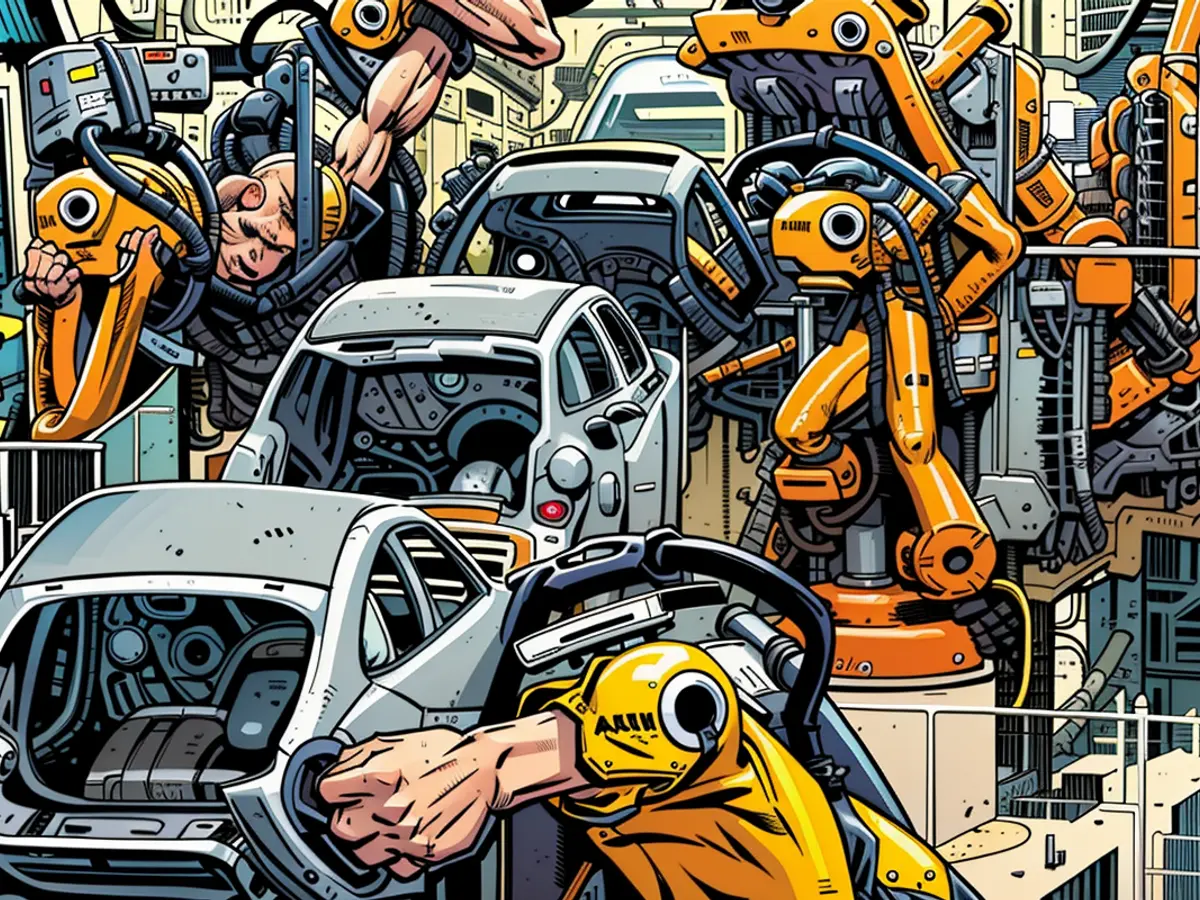- The Graveness of the Predicament at Autoland Germany: A Closer Look
Germany's Auto Industry is a Major Player: Over 770,000 individuals are employed in Germany's automotive sector, making it the largest industrial field by revenue in the country. According to the Federal Statistical Office, vehicles and their components accounted for approximately 17% of German exports in 2023 alone. However, the industry is facing challenges. For the first time in three decades, Volkswagen might have to implement layoffs and close plants due to operational reasons. This could be just the beginning of the troubles, warn experts. What are the problems? A rundown:
The Carmakers: German manufacturers are grappling with declining sales and the substantial expenses of transitioning to electric powertrains. This is causing profits to dwindle. Volkswagen reported a 14% drop in surplus during the first half of the year, BMW by nearly 15%, and Mercedes-Benz by almost 16%. All three have had to lower their yearly profit forecasts, with BMW doing so most recently on Tuesday. The outlook is pessimistic. The industry is looking to the future with considerable apprehension, as per the Munich Ifo Institute.
The Plants: On average, German plants operated by Volkswagen, BMW, Mercedes, and others only ran at over two-thirds of their capacity last year, according to Marklines data. Together, they could manufacture 6.2 million cars annually. In 2023, only around 4.1 million were produced. The industry is producing fewer cars than before, concedes analyst Eric Heymann of Deutsche Bank Research, while keeping labor costs high. Although production is 23% below its peak, the workforce has only reduced by 8%. This makes the plants less efficient.
The Suppliers: The auto suppliers, with around 270,000 employees (approximately 311,000 in 2018), have been impacted by the crisis for a while. After all, car manufacturers make orders based on demand. According to Horvath's survey, a majority of 60% of companies plan to decrease staff moderately. ZF has announced it will cut between 11,000 and 14,000 jobs in Germany by the end of 2028. Continental is even considering divesting its automotive supply business and listing it on the stock exchange.
The Customers: Although material and supply shortages have largely been addressed, the German Automotive Industry Association (VDA) sees increasing problems with demand. "The challenging overall economic situation is influencing consumer behavior and leading to weak passenger car demand," says a VDA spokesperson. German manufacturers are particularly affected because, at the same time, new competitors like Tesla and Chinese manufacturers are entering the market, reducing the market share of domestic manufacturers.
The Location: Experts believe the automotive industry crisis is shining a harsh light on Germany's weak spots. Almost five years after the pandemic, German industrial production is still 10% below its pre-corona level, states ING economist Carsten Breszki. The old business model based on cheap energy and easily accessible large export markets is no longer viable. Given the declining dynamism in the USA and China, as well as additional trade tensions, there's little hope for a strong export-driven recovery.
The Exports: For years, exports have been the primary driver of the German automotive industry. According to the VDA, 3.1 million of the 4.1 million cars produced in Germany in 2023, or about three-quarters, were exported. However, cautions a VDA spokesperson: "The weights in the world market are shifting." While the traditional European and North American markets are shrinking, there are high growth rates in China and India - markets increasingly served by local competitors.
At the same time, German manufacturers used to mock local competitors are also making inroads into Europe. In China, local carmaker BYD has already surpassed the VW brand as market leader. "Competition is fierce given substantial investments in future technologies," says the VDA spokesperson. "Some companies are making significant investments in transformation, while others are looking to conquer markets - both are major endeavors." German manufacturers often find it harder than new challengers focused on electric vehicles.
The Future: According to the German Institute for Economic Research (DIW), German automakers still have "all the potential and abilities to compete globally." "To achieve this, however, automakers must reimagine themselves and harness their innovative strengths to accelerate and improve the switch to electric mobility and autonomous driving faster and better," said DIW President Marcel Fratzscher to dpa. "The belief that the internal combustion engine is a long-term solution is a dangerous misconception." The decision for electric vehicles has already been made worldwide.
Other challenges facing the German auto industry include increasing competition from local manufacturers in traditional export markets, such as China, where BYD has surpassed Volkswagen as market leader. Moreover, other countries are investing heavily in electric vehicle technology, which puts pressure on German manufacturers to innovate quickly and efficiently in this area.








